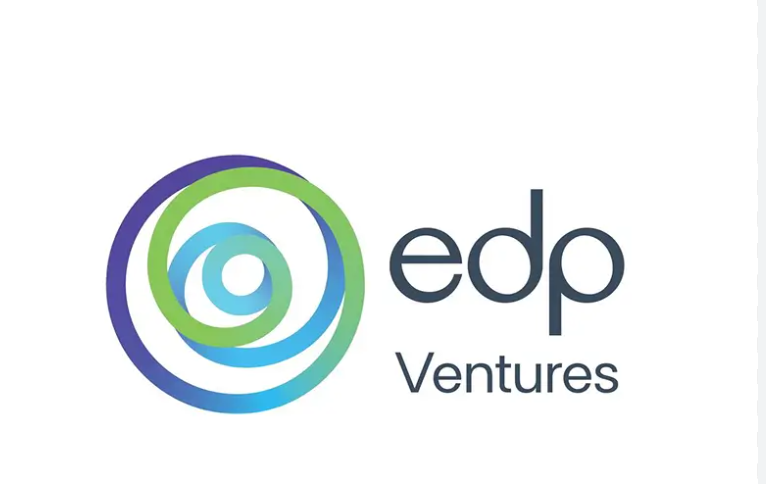There are many corporate venture capital organizations in the climate sector, which aim to bring the technologies developed by climate tech startups and early-stage enterprises into production. This article looks at 11 such CVCs that stand out to Climate Insider, for their investment breadth and choices.
One of the most striking trends we found in analyzing these CVCs is the enormous range of technologies supported by CVCs. While CVCs invest in renewable energies and batteries, the sector is also providing funding for companies in the following subsectors: direct air capture (DAC), ocean-based carbon removal, ammonia and hydrogen systems, methane-to-methanol conversion, AI-driven grid analytics, and circular bio-based materials such as chitosan.
If you’re looking for more information on these CVCs, enriched by our analysts and updated regularly, you may be interested in exploring our intelligence platform:
1. Microsoft Climate Innovation Fund

Launched in 2020, Microsoft’s Climate Innovation Fund has a total of US$1 billion to put towards climate innovations. The fund decides its allocation based on four criteria, which include climate impact, underfunded markets, and climate equity – ensuring that developing economies and underserved communities also benefit from climate solutions.

In the period from 2024 onwards, the Climate Innovation Fund has focused on several climate subsectors for financing: infrastructure-scale decarbonization, energy optimization, and carbon dioxide utilization.
The fund invested US$326.4 million in green hydrogen-based steel production company H2 Green Steel (Stegra), and another US$58 million Terradot, which pursues enhanced rock weathering to trap carbon.
The Climate Innovation fund has also invested US$21.5 million in biochar-based carbon removal company Applied Carbon, and US$200 million in Twelve, a carbon dioxide-to-jet fuel and e-chemicals platform.
Microsoft Climate Innovation Fund is headed by Brandon Middaugh.
2. Aramco Ventures

Based in Saudi Arabia, Aramco Ventures is the corporate venture arm of oil and gas giant Aramco. Formed in 2012, its current assets under management (AUM) is at US$7 billion. The venture fund contains a Sustainability Fund to achieve net-zero Scope 1 and Scope 2 emissions, and has increasingly directed its funding towards companies developing carbon removal, hydrogen systems, advanced fuels, and monitoring solutions.
Recent funding has included US$80 million in direct air capture company CarbonCapture, and anotherUS$60 million in Spiritus, a company that produces low cost direct air capture with novel materials.
Aramco Ventures has also spent an undisclosed amount to support Ucaneo, developing direct air capture with an enzyme-based ambient.
Outside of carbon capture, Aramco Ventures invested US$56 million in Amogy, an ammonia-to-power technology for heavy transport, and US$27 million in Andium, which provides monitoring for visual emissions. Utility Global, which produces hydrogen from waste gas, has also received US$53 million in investment.
The portfolio balances high-risk, high-reward innovations with practical near-term applications.
Aramco Ventures is led by CEO Mahdi Aladel.
3. Amazon’s Climate Pledge Fund

Founded in 2020 in Seattle, Amazon’s Climate Pledge Fund was set up to manage investments in the sector. With an initial fund size of US$2 billion, the fund has invested in more than 20 companies, across a variety of sectors within climate tech. In the electric vehicle sector, Amazon has taken stock in electric truck manufacturer Rivian, and has also invested in companies working with sustainable aviation fuels and low-carbon shipping technologies. Many of the companies in its portfolio can be scaled beyond Amazon’s supply chain.
The Climate Pledge Fund will also invest in multiple carbon capture technologies, and has purchased a 10-year agreement with Occidental (Oxy)’s 1PointFive to remove 250,000 metric tons of carbon dioxide. Amazon’s fund has also made an equity investment in CarbonCapture Inc., a direct air capture company.
The fund is also investing in sustainable building materials such as low-carbon cement and concrete, as well as high-efficiency building technologies.
Portfolio companies include battery recycling firm Redwood Materials, aviation firm ZeroAvia, electrofuels manufacturer Infinium, and circular manufacturing company Molg. Its largest investment is in X-Energy, a nuclear power company, with the fund putting US$700M into the venture.
The fund is led by Matt Peterson, Director of Corporate New Initiatives, and Kara Hurst, VP and head of sustainability at Amazon.
4. BP Ventures

Founded in 2006, this CVC focuses on high-growth technology companies, focusing on the advanced mobility, low-carbon solutions, and digital transformation sectors. It is highly focused on hydrogen and carbon capture, and their investments since 2024 have gone to companies tackling hard-to-abate sectors through innovative electrolysis and carbon capture solutions.
The fund has invested US$111 million Hysata, which develops ultra-high efficiency electrolyzers to make green hydrogen cost competitive with fossil fuels. BP Ventures also invested US$30 million in Mantel, which is developing solid sorbent carbon capture technology for high-temperature industrial flue gases. It also invested US$6.7 million in Advanced Ionics, which produces green hydrogen using industrial waste heat and significantly lowers electricity demand.
BP Ventures primarily invests in Series A rounds for companies based in the United States. The fund is led by Vice President Gareth Burns.
5. Shell Ventures

Founded in 1996, Shell Ventures as one of the first CVCs in the oil and gas industry. It has funded companies in a wide range of transition subsectors, including carbon capture, green hydrogen, direct air capture, fusion energy, and zero-emission logistics.
Since 2024, Shell Ventures has invested in companies ranging from industrial carbon capture, hydrogen purification, and clean transport refrigeration. In industrial carbon capture, Shell Ventures invested US$60M in Mantel, and has also invested US$36.5 million in Supercritical Solutions, which produces ultra-efficient electrolyzers for H₂ production.
Also in its portfolio are direct air capture company Origen (US$13 million), nuclear fusion reactor company Zap Energy (US$130 million), and Sunswap (US$23 million) which manufactures solar- and battery-powered refrigeration units for decarbonized logistics.
Managing Partner Quennie Sho heads Shell Ventures.
6. Chevron Technology Ventures

Chevron Technology Ventures, launched in 1999, has a strong focus on nuclear and battery technologies. It has also provided substantial investments in companies focusing on hydrogen, battery innovation, and sustainable fuels.
The CVC has also focused on investments in renewable energy technologies.
Recent funding since 2024 has been given to technologies to advance the energy transition. In July 2024, Chevron Technology Ventures invested in nuclear fission company Zap Energy for US$130 million, to help the company develop its advanced fusion which uses Z-pinch technology for clean baseload energy. The CVC also invested US$100 million in Radiant, which is developing portable microreactors that can be used for off-grid, mobile zero-emission power. It also invested US$34 million in Aether Fuels to generate sustainable aviation fuels from carbon dioxide and biomass.
Chevron Technology Ventures is headed by President Jim Gable.
7. Eni Next

The oldest CVC on the list (founded in 1956), the venture capital firm of the Italian energy company prioritizes investments in carbon removal, clean fuels, energy storage, and advanced solar technologies. It has also provided funding for circular bioeconomy technologies.
Eni Next is focused both on climate mitigation and adaptation technologies.
The CVC’s funding since 2024 has run the gamut from bio-based chemicals to advanced solar technologies. Eni Next invested US$140 million in Tidal Vision, which converts crustacean waste into sustainable chitosan for water treatment and textiles. The fund also spent US$40 million on investing in M2X Energy, which develops modular systems to capture and convert stranded gas into methanol. Also receiving funding was E-Zinc, netting US$31 million in investment, for its zinc-based battery system designed for deep decarbonization and resiliency.
Eni Next also invested US$30 million in Mantel, as well as US$21.5 million in Captura, an ocean-based direct air capture technology that uses seawater chemistry to remove carbon dioxide from the atmosphere.
Based in Boston, Massachusetts, Eni Next is led by Claudio Descalzi.
8. Equinor Ventures

Founded in 1999, Equinor Ventures focuses its investments in companies shaping the future of energy. Focused on companies in Europe and North America, Equinor is most interested in renewable energy and low-carbon solutions.
Recent investments have included US$121 million in 44.01, which aims to mineralize carbon in peridotite. The CVC has also funded RayGen, for US$85 million, to assist in development with the company’s solar and thermal long-duration storage. H2Site, which decentralizes hydrogen systems, also received US$40.7 million from the Norwegian venture capital fund.
Equinor Ventures has also invested US$34 million in eSmart Systems, an AI-grid monitoring and analytics company, while also providing US$21.5 million to ocean-based direct air capture company Captura.
Equinor Ventures is headed by Senior Investment Director Ingebrigt Masvie.
9. Toyota Ventures

Toyota Ventures is a California-based CVC, which has dispensed more than US$117 million towards a number of companies operating in the artificial intelligence, smart cities, energy, and materials sectors. Recent investments have centered on green hydrogen, alternative fuels, battery innovation, and circular chemistry.
Recent investments have included investing US$30 million in E-zinc, which is developing long-duration zinc energy storage. Toyota has also invested US$21 million in Ecolectro, a company developing non-fluorinated hydrogen electrolyzers, and another US$21 million in Zymochem, a carbon dioxide-to-chemical fermentation platform.
Other companies receiving funding from Toyota Ventures is Supercritical Solutions, the hydrogen electrolyzer producer, which received US$17.8 million, and Relectrify, a battery life extension and reuse company, which received US$17 million.
Software firm Renewabl has also received an undisclosed amount of funding; the company provides energy transition software and analytics.
The CVC is headed by Managing Partner Natalie Fonseca Licciardi.
10. EDP Ventures

EDP Ventures is the CVC wing of Lisbon-based utilities firm EDP. This CVC primarily focuses its investments in accelerating the clean energy transition through investments in grid optimization, renewables, and decarbonization technologies.
Since last year, EDP Ventures has been focusing on hydrogen production, carbon removal, and intelligent energy systems for its funding.
Power to Hydrogen, a company that is developing low-cost reversible hydrogen electrolyzers, has received funding from EDP Ventures. The utility has also invested in Delfos, which focuses on predictive analytics for renewable assets.
EDP Ventures has also invested in Captura, the ocean-based direct air capture company, while Mixergy – which develops smart hot water tanks and thermal storage – has received US$13.6 million in funding.
EDP Ventures is headed by Luis Castro Henriques, General Partner, and Frederico Gonçalves, Managing Director.
11. Maersk Growth

Maersk Growth, the corporate venture capital firm of shipping giant Maersk, was founded in 2017, and is headquartered in Copenhagen, Denmark. This CVC is focused on decarbonizing global supply chains through investments in clean energy, sustainable fuels, and climate-enabling technologies.
In the past two years, the CVC has put investments towards companies operating in the battery innovation, carbon capture, and green chemical production space.
The CVC has invested US$29 million towards Altris, a company advancing sodium-ion battery chemistry. Maersk Growth has also invested US$16.2 million in C1 Green Chemicals, which is developing carbon dioxide-to-methanol green chemical synthesis.
Maersk Growth is led by Elisabeth Gunner Schermer.








